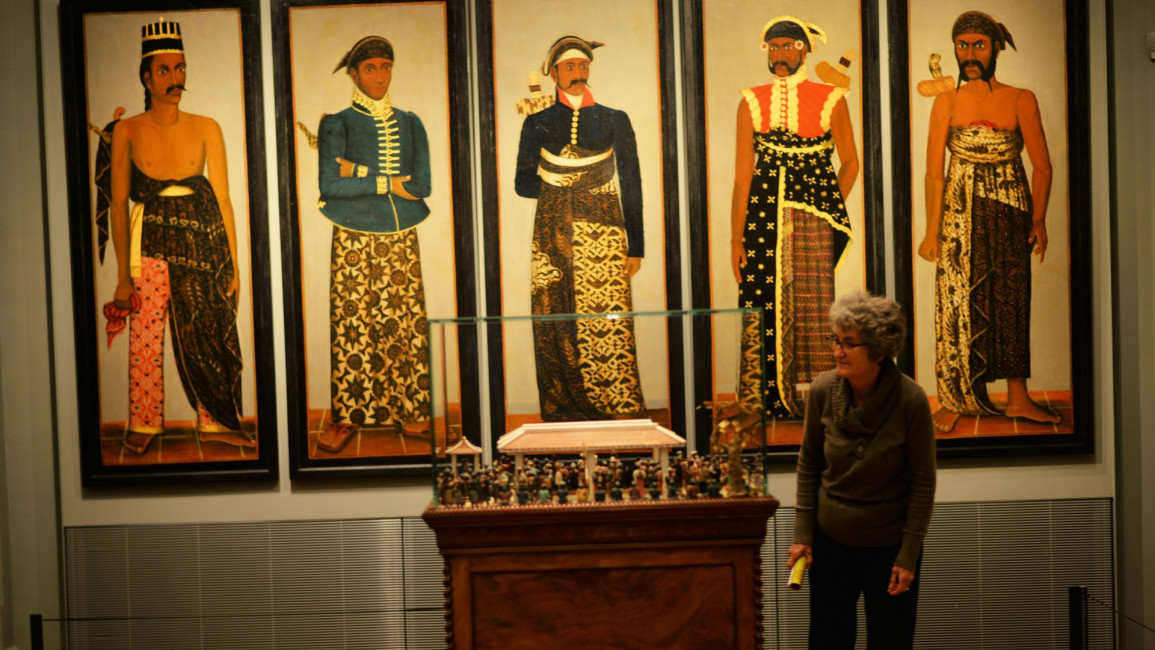
This Black History Month, museums should seek to return their looted artefacts
The advice was put forward by a committee established by the Dutch culture minister. In its official report, the committee stated that museums across the country should formally address their colonial past, and that the return of looted items to their original homelands should be unconditional.
Lilian Gonçalves-Ho Kang You who authored the report, aptly summarised the conclusions of the committee: "If it doesn't belong to you then you must return it."
The Rijksmuseum in Amsterdam has already made a clear commitment to the proposals, and its director, Taco Dibbits, says the museum has started to research the origins of the pieces in their collections. "We expect this to contribute to a constructive dialogue with countries of origin. In addition, it is important that the museums work together internationally to increase knowledge about this area," he stated.
His sentiments were echoed by the director of the Tropenmuseum which is also based in Amsterdam, who said that "with this, the Netherlands is taking its responsibility by recognising the injustice and making it possible to return it. We welcome that." They too, have begun researching their pieces and their origins.
It is estimated that there are some 100,000 objects in the Netherlands to be considered for return. With this in mind, and given the continuing global pandemic which has caused considerable disturbance to cultural spaces, it is likely that this process will be a long one. That said, the Netherlands' culture minister will also be aware that a delay may have an impact on the level of trust placed in the Dutch state by former colonies and their diaspora communities living in the Netherlands.
 |
Committing to an inventory of the wealth owed to former colonies requires a deep interrogation of current streams of profit |  |
Lest we forget that the Netherlands has been here before. A gold-inlaid dagger which once belonged to Indonesian Prince Diponegro who fought the Dutch empire was given back 45 years after the promise of return was made, and after it had mysteriously gone missing for two years.
While she welcomes the recommendations, Sekai Makoni, a Black artist living and working in the Netherlands and who grew up in the UK, stated: "This is the very least that art institutions should be doing." But she still remains dubious about the extent of their commitment to decolonising their practices, and their willingness to truly open up spaces to artists and communities from former colonies and their diaspora.
Twitter Post
|
In isolation, a single restituted object may amount to little, but within the context of the reparations due to former enslaved and colonised peoples across the Global South, it's a step in the right direction. Committing to an inventory of the wealth owed to former colonies requires a deep interrogation of current streams of profit within the Netherlands. It is not simply a question of the artefacts in museums, but also the walls that surround the exhibition pieces themselves, and the unequal international flows of money, goods and people.
If the wealth, labour and resources of the Global South financed the beautiful buildings along the streets of many Dutch towns that people travel to admire from around the world, how should we measure what is rightfully the property of the former colonies?
Read more: The statues are tumbling down, the structures of racism must follow
Also worth considering, is the legacy of Dutch colonisation on the psyche, and its impact on the opportunities or resources available to subsequent generations. Colonialism had a profound effect on the cultural and artistic wealth of those countries, and has left many of them economically and politically destabilised to this day.
Similarly, curators in western nations pushing the neocolonial claim that many former colonies simply do not have the resources to receive and preserve the items owed to them or the infrastructure for reexhibiting them, should take a closer look at the roots of poverty in the states they are talking about.
Also mentioned by the committee in charge of the proposals to begin what some may consider the "decolonisation of Dutch museums", is the issue of pieces taken by other European colonial powers but which are housed in the Netherlands. Will political pressure be applied for neighbouring states that also profited from the oppression of Global South countries to follow suit?
If anything, this point demonstrates the need for the project to be much wider so that it doesn't become a tokenistic gesture that just allows the government to look good without addressing a long, violent and exploitative period of history.
The conversation is not a new one, after all. From anti-colonialist struggles across former occupied lands and their demands for reparations, to ongoing anti-imperialist and anti-racist demonstrations by people of colour and migrants at home, the struggle for righting the historical record and for justice is a long one.
Such achievements did not manifest out of the goodness of the Dutch state's heart. They are the outcome of longstanding collective mass pressure from below.
 |
Curators in western nations push the neocolonial claim that many former colonies simply do not have the resources to receive and preserve the items owed to them |  |
The recent Black Lives Matter demonstrations, which also led to the toppling of statues of imperialist figures around the world, have no doubt had an impact. Who could forget the dumping of the Edward Colston statue into the docks in Bristol? That footage was a powerful statement that needs to extend to demands for the uprooting of entire structures in society that perpetuate racism and inequality to this day.
I'm reminded of Black poet Benjamin Zephaniah, who turned down an OBE during the Blair years because the institution itself honours the very British Empire that continues to inflict poverty, war and oppression upon people of colour at home and abroad. The gesture was supposed to be the highest mark of state recognition for his work as an artist. His response was to ask, "Why don't they just give me some of those great African works of art that were taken in the name of the empire and let me return them to their rightful place?"
Cultural institutions like museums and art galleries play a role in reinforcing and sustaining social divisions. Zephaniah's statement highlighted the inherent contradiction in "recognising" the value of Black art with an award given by the Queen of England herself, by an institution that stole, destroyed and arguably stunted artistic potential throughout its imperialist history - not to mention the UK's continued role in doing so.
The Netherlands, having shown its willingness to engage in this cultural process must now decide if it will truly address its colonial wrongs, or limit itself to tokenistic gestures. How this plays out in the coming years may well have an impact on what takes place elsewhere in the western world.
Malia Bouattia is an activist, a former president of the National Union of Students, and co-founder of the Students not Suspects/Educators not Informants Network.
Follow her on Twitter: @MaliaBouattia
Have questions or comments? Email us at: editorial-english@alaraby.co.uk
Opinions expressed in this article remain those of the author and do not necessarily represent those of The New Arab, its editorial board or staff.


![President Pezeshkian has denounced Israel's attacks on Lebanon [Getty]](/sites/default/files/styles/image_684x385/public/2173482924.jpeg?h=a5f2f23a&itok=q3evVtko)



 Follow the Middle East's top stories in English at The New Arab on Google News
Follow the Middle East's top stories in English at The New Arab on Google News


